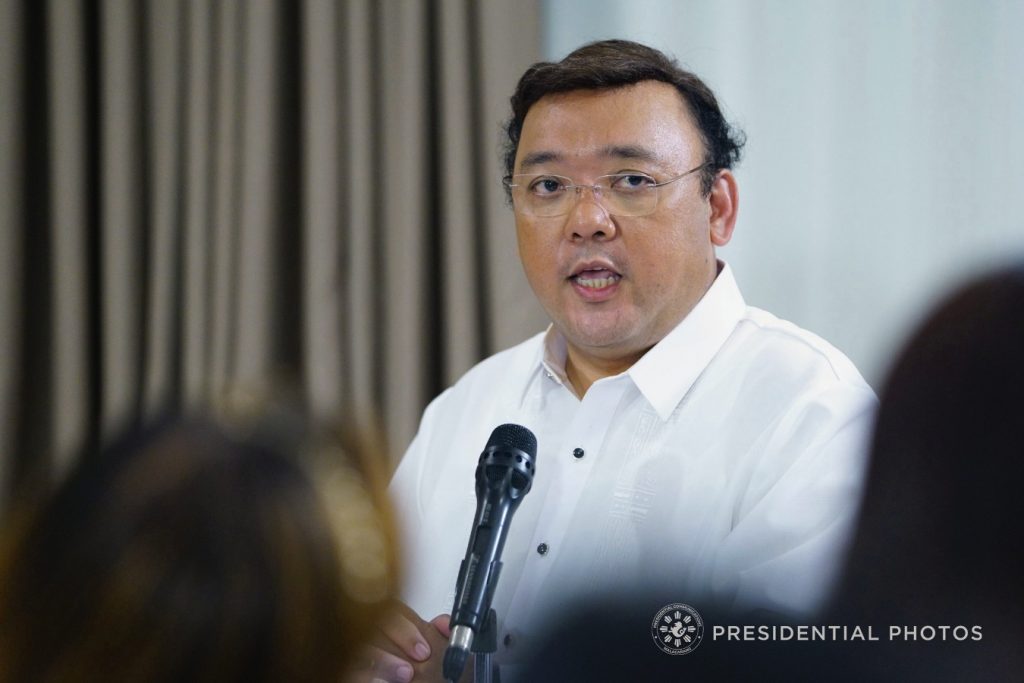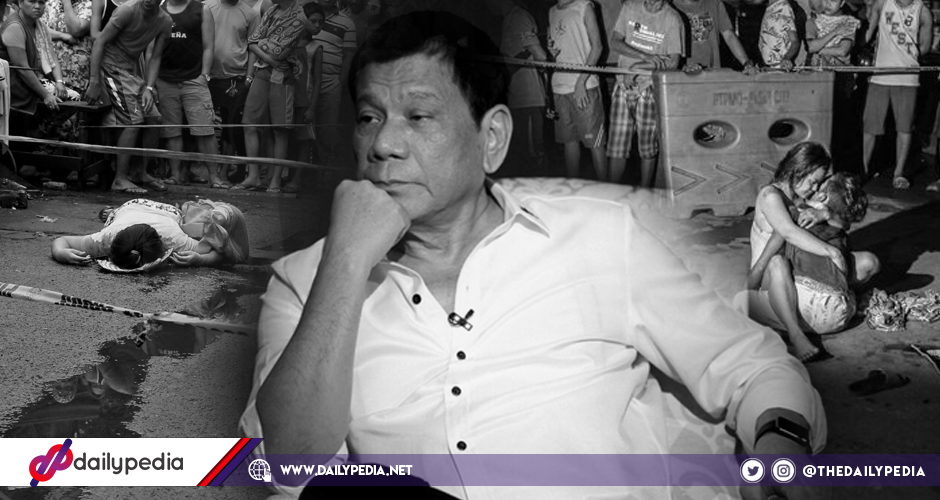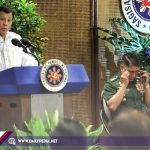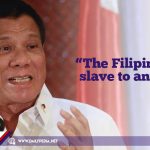- Palace welcomes ICC prelim examination; affirms lawful use of force in drug campaign
- Palace remains ‘confident’ amid ICC’s prelim exam into drug campaign
President Rodrigo Roa Duterte welcomed the International Criminal Court’s (ICC) conduct of a preliminary examination into his government’s anti-drug campaign, Malacañang announced on Thursday, February 8.
“The President has said that he… welcomes this preliminary examination because he is sick and tired of being accused of the commission of crimes against humanity,” Presidential Spokesperson Harry Roque Jr. said during an official press briefing.
The Palace announced that the ICC’s Office of the Prosecutor (OTP) would begin its preliminary examination on the alleged acts associated with the government’s anti-illegal drugs campaign.

Secretary Roque clarified that a preliminary examination does not equate to a formal preliminary investigation, but is merely a procedure conducted by the ICC to determine whether the case falls under its jurisdiction.
“We note that this is only a preliminary [examination]. The Office of the Prosecutor is merely exercising her mandate to determine whether there is reasonable basis to proceed with an investigation into a situation pursuant to criteria in the Rome Statute,” he said.
The Spokesperson said the administration saw the development not as a victory for the President’s critics, but as an opportunity to prove that the allegations of crimes against humanity against the President are baseless.
“No one should claim victory because we are only in the stage of preliminary examination… So if they think they have indicted the President, that’s so wrong,” Roque said.
He further stressed that there is no sufficient basis for the ICC to claim jurisdiction over cases involving the Philippines’ anti-drug campaign.
Roque explained that in order to exercise jurisdiction, the ICC has to establish the admissibility of the case, and the principle of complementarity should be implemented. This means that the ICC can only investigate criminal cases if the domestic courts are unable or unwilling to do so.
“Remember, the International Criminal Court is not a court of first instance. All countries to the ICC signed up to it because they wanted the court to be a court of last resort,” he said, stressing that the Philippine government has not shown unwillingness to prosecute its erring officials.
“[I]t is the position of the President that the case is inadmissible,” Roque added.
He also claimed that the acts attributed to the President’s anti-drug campaign could not be regarded as crimes against humanity. Roque said the campaign was a lawful exercise of police power, which aims to deal with the country’s drug trafficking problem.
“As a sovereign State, the Philippines has an inherent responsibility to protect its current and future generations by effectively addressing threats to the safety and wellbeing of its citizens, such as the proliferation of illegal drugs,” the Spokesperson noted.
“Because the war against drugs is a lawful and legitimate police operation, it cannot be characterized as an attack against civilian populations,” he added.
In line with these, Roque described the ICC’s preliminary examination as a “waste of the court’s time and resources” since the criteria to establish jurisdiction were not met. He expressed confidence that the move would not go beyond preliminary examination.
Meanwhile, the Spokesperson also clapped back at the administration’s critics, whom he said were behind the attacks against the war on drugs.
“Obviously, this is intended to embarrass the President. But the President is a lawyer; he knows what the procedures are. They will fail,” he added.
Roque maintained that President Duterte continues to stand by his position to protect the Republic against all threats to our national security.
Palace remains ‘confident’ amid ICC’s prelim exam into drug campaign
Malacañang on Friday, February 9, said President Rodrigo Roa Duterte is confident that the International Criminal Court (ICC) would not go beyond its preliminary examination into the allegations involving his administration’s anti-drug campaign.
Presidential Spokesperson Harry Roque, Jr. stressed this during a press briefing held here where he said that he had discussed the ICC preliminary examination with the President.

Secretary Roque said President Duterte was positive he would be cleared from accusations that he was behind the alleged extrajudicial killings in the country, the same way he was cleared from accusations linking him to the workings of the alleged Davao Death Squad (DDS) when he was mayor of Davao city.
Roque cited that even former United Nations (UN) Special Rapporteur on extrajudicial, summary, or arbitrary executions Philip Alston cleared the President from criminal liability when he investigated the suspected vigilante group in Davao.
“The most that Special Rapporteur Philip Alston recommended then was criminal charge for simple negligence against the police,” he stressed.
Hence, the Spokesperson said President Duterte was confident that the conclusion of the ICC would be similar to the findings of the UN Special Rapporteur in relation to the government’s policy against illegal drugs.
“[T]he President said that if the conclusion of the Special Rapporteur was that the police was only liable for simple negligence, he is very confident that… at most, what could be the finding [of the ICC] would be similar to the finding of Philip Alston; that sometimes – not all the time – police appear to be negligent in conducting the war against drugs,” he said.
Furthermore, Roque insisted that the basis of the country’s consent to become a member of the ICC was the principle of complementarity, which means that the court can only claim jurisdiction over cases of crimes against humanity if the State fails to investigate them.
“Our domestic courts are able and willing to prosecute these crimes. The ICC is not a court of first instance; the ICC is only a court of last resort,” Roque said.
The President’s Spokesperson also reiterated that the alleged deaths attributed to the administration’s campaign against illegal drugs were because of lawful police operations and therefore could not be regarded as attacks against civilians.
Roque clarified that no formal charges were filed against any official in government, since the preliminary examination only aims to determine if there is a reasonable basis to conduct a formal investigation.
“Lilinawin ko po, preliminary examination pa lang po ito. So wala po talagang nasasakdal dito. Pag-aaralan lang ng [ICC] Prosecutor ‘yung sitwasyon at titingnan kung mayroong reasonable basis to begin a preliminary investigation,” he said.
Palace hails passage of Free Irrigation Act
During the same press briefing, Malacañang announced that the President has signed into law Republic Act No. 10969, also known as the Free Irrigation Service Act.
Roque said President Duterte signed the law last Friday, February 2, “to ensure that irrigation service is made available through the continued construction, repair, and maintenance of necessary irrigation facilities.”
The Spokesperson said the new law would further relieve Filipino farmers and their irrigation associations from the burden and consequence of unpaid irrigation service fees.
Secretary Roque was one of the principal authors of House Bill No. 5670, which was the House version of the Free Irrigation Service Act.
Roque, the former representative of the Kabayan Party-list, was one of the principal authors of House Bill No. 5670, also known as the “Free Irrigation Service Act.”
“Dito po napupunta ang buwis ng taumbayan, libreng patubig po para sa ating mga magsasaka,” Roque said.



